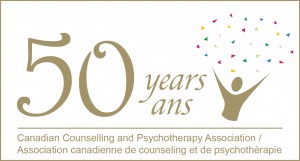A short while ago I reviewed a new app – TruReach Health (you can check out my initial review here – https://www.ccpa-accp.ca/hot-off-the-app-press-trureach-health/ ). Shortly after my review went live I was contacted by the developer, Jeff Perron, thanking me for my review and offering to chat with me about my concerns.
Impressive!
App developers of the world, listen up! This is how you do it. Being responsive to feedback is crucial to the ongoing success of any app and especially one that’s about improving our mental health.
My concerns were:
- The positioning of the privacy policy after one had given contact information
- This issue is being resolved on both the Android and iPhone versions. The link to the privacy policy will now be on the download page. Which means you can read it before you download.
- Report progress email was pre-filled in with the TruReach email address
- This issue is being resolved on both the Android and iPhone versions. The email address section will now be blank offering the user the opportunity to make a clear decision about who they send their progress report to.
- Lack of contact information on the accompanying website
As I suspected, this is a cost issue. The decision was made to concentrate more on the development of the app. As TruReach has more financial resources they will build out the website more fully. Given the other issues have been addressed I see this as less of an issue.
In addition to the app there is now this short video from TruReach explaining what it’s all about. https://www.youtube.com/watch?v=rCSOhnWSe0w
TruReach is being piloted through the Royal in Ottawa. The Royal has an app titled “Health Minds” which I have reviewed previously. Dr. Simon Hatcher, a psychiatrist who has been involved with providing clinical input into an e-Therapy website in New Zealand for people experiencing depression, will be involved in testing TruReach with two different patient populations. I look forward to hearing the results.
Jeff said his aim is to “get help to as many people as possible”.
So, if like me, you feel that these fixes to the app will address any concerns you have then please do encourage people to use it. If you have any lingering questions don’t hesitate to ask. You can reach Jeff at [email protected].
Dawn M. Schell, MA, CCC, CCDP is an affiliate of Worldwide Therapy Online Inc. http://www.therapyonline.ca
*The views expressed by our authors are personal opinions and do not necessarily reflect the views of the CCPA






